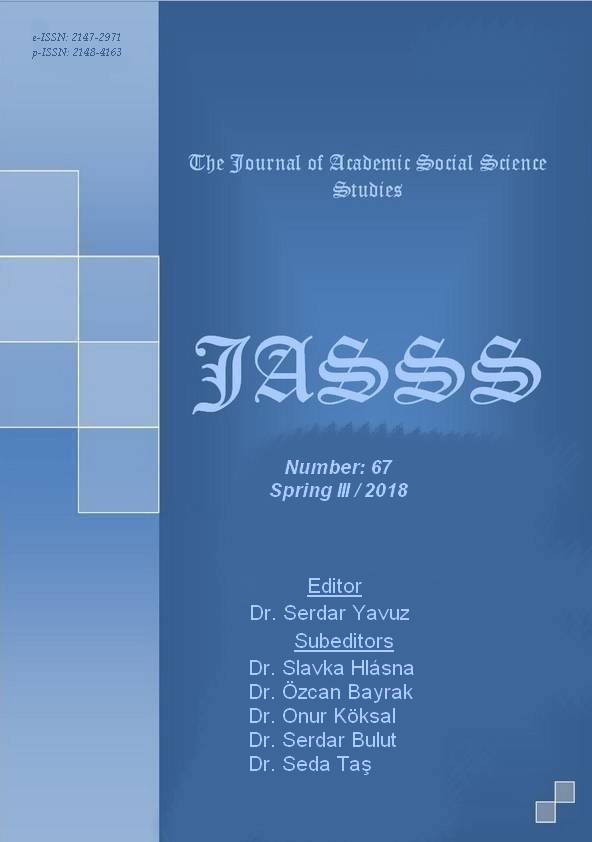SULTAN BAYBARS VE ABAKA HAN’IN KAYSERİ’YE GELİŞLERİNİN TÜRKİYE SELÇUKLULARI BAKIMINDAN DEĞERLENDİRİLMESİ
Author :
Abstract
Anadolu'da kurulan önemli Türk Devletlerinden biri olan Anadolu Selçukluları, XIII.yüzyılın ortalarına kadar çok parlak bir dönem geçirmiştir. Ancak 1250 yılında Mısır'da kurulan Memlük Devleti ile 1258 yılında İran coğrafyasında kurulan İlhanlı Devleti arasında bir rekabet başlamış ve ilk örneğini 1260 yılında vuku bulan Ayn-Calut Savaşı'nda göstermiştir. Moğollar o ana kadar hiç yenilgi almamışlardı. Bu tarihten itibaren Memlüklerle İlhanlılar arasında başlayan rekabet, İlhanlılar'ın Ayn-Calut yenilgisinin intikamını Anadolu'da 1277 tarihinde vuku bulan Elbistan'da yapılan savaşta almaya çalışmışlardır. Memlük Sultanı Baybars ile İlhanlı hükümdarı Abaka Han Kayseri'ye gelerek mücadelesini sürdürmüş ve Memlük ordusu bu savaşta İlhanlı ordusunu yenmiştir.Sultan Baybars Elbistan savaşını soydaşları olan Anadolu insanını Moğollar'ın zulmünden kurtarmak için yapmıştır. Fakat bu savaştan sonra İlhanlılar Anadolu Selçukluları üzerindeki baskılarını daha da arttırmışlardır. Bu duruma Muineddin Pervane'nin iki ülke arasında uyguladığı ikili siyaseti sebep olmuştur.
Keywords
Abstract
The Anatolian Seljuks, one of the important Turkish states established in Anatolia, had a very bright period until the middle of the 13th century. The Anatolian Seljuk State gradually went under the dominance of the Ilkhanid State after the Kösedağ War with the Mongols. However, a rivalry began between the Mameluke State established in Egypt in 1250 and the Ilkhanid State established in Iran in 1258, and the first example of it emerged in the Ayn-Calut War in 1260. The Mongols had never received defeat until that time. From this date onwards, the rivalry between the Mamluks and Ilkhanis continued with the Ilkhanids attempting to retaliate for the defeat of Ayn-Calut in a battle in Elbistan, which took place in 1277 in Anatolia. The Mamluk Sultan Baibars and the Ilkhanid ruler Abaqa Khan came to Kayseri and continued their struggle and the Mamluk army defeated the Ilkhanid army in this battle. Sultan Baibars made the Battle of Elbistan to rescue the people of Anatolia, his kin, from the oppression of the Mongols. But after this war Ilkhans increased their pressure on the Anatolian Seljuks. Because the Seljuks did not fight with Mamluk soldiers along with the Ilkhan armies and Ilkhans were alone and defeated in this war. Mu'in al-Din Sulaiman Parwana was seen as responsible for this defeat and Abaqa Khan came to Anatolia after the war to commit a massive massacre and thousands of Anatolian people lost their lives because of the persecution of the Mongols. Some historians point out that this persecution and oppression in Anatolia was caused by the dual politics that Parwana applied between the two countries.





